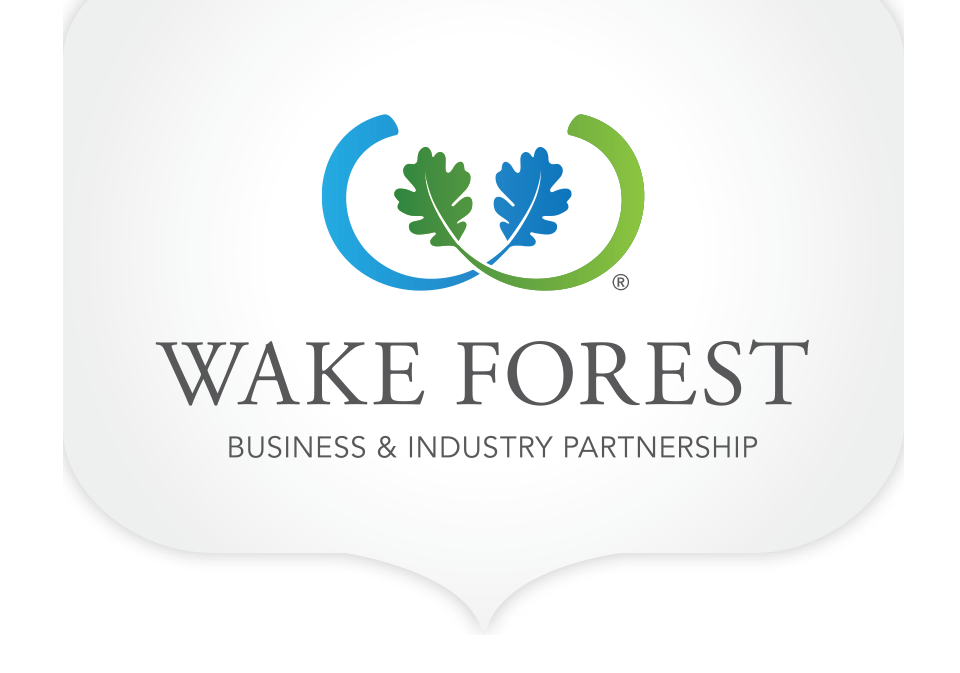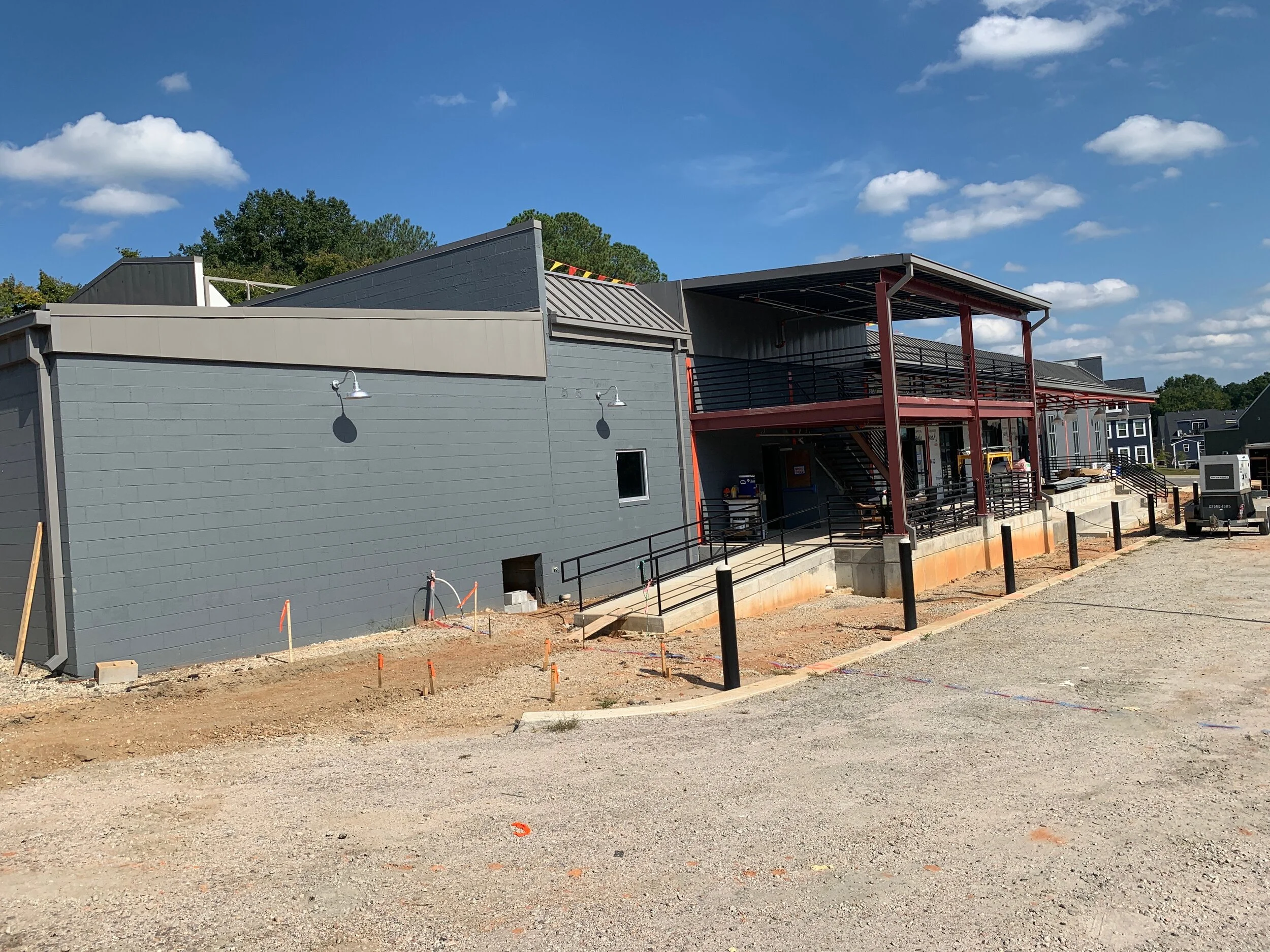The day Philip Freeman – and his neighbors – watched an 18-wheeler roll down their quiet residential street in North Raleigh, he knew there had to be a better model for growing his start-up company’s line of eco-friendly insect-repelling candles and incense products. The delivery driver had confused Freeman’s garage-based business with the address of its leased storage space. The mistake was pivotal to the success of Murphy’s Naturals, which grew from the distaste Freeman’s wife once had for being outside on mosquito-filled nights, while also pioneering an exciting new entrepreneurial development tool.
Conventional office suites were then in high demand. While industrial space was available, flexible leasing terms usually were not. Nor did available buildings come equipped with the one amenity Murphy’s had to have. “I really needed a loading dock,” recalls Freeman, a former Naval officer whose duties included disposing of live explosives. Five years ago, he found a home for his business in the corner of a one-time A&P grocery warehouse near downtown Raleigh.
With all the right ingredients in place, Murphy’s found eager sales channels at retailers such as Whole Foods, Target and Wegmans, as well as a lucrative relationship with Amazon that connects customers in all 50 states with the Murphy’s product line. The company currently has 40 employees. “A year and a half ago, we had eight,” Freeman says.
Amidst the growth of Murphy’s Naturals and with like-minded partners, he took some adjacent space and put together an entrepreneurial model that would turn The Loading Dock into a hive of activity for start-ups, creative professionals, non-profit groups, and innovators of every stripe. Through a unique partnership with the Wake Forest Business & Industry Partnership (WFBIP), Freeman is bringing the model to the Welsh Building at 525 S. White Street. Set to open later this month and officially launch on December 4, 2021, the Loading Dock Wake Forest will transform the 24,000-sq.-ft. former paper company into 48 private offices, abundant common work areas, event space, outdoor amenities and, a soon-to-follow eatery serving breakfast, lunch, and dinner. “We want to be an attraction to the larger Wake Forest community, which we very much want to be part of,” says Freeman. “We can remove barriers to entrepreneurism.”
An exterior view of The Loading Dock Wake Forest, opening late October, 2021
Spearheaded by Jason Cannon, President of the WFBIP, in 2018 Wake Forest leaders approached Freeman at The Loading Dock about taking their model to northern Wake County. Significant support has also come from Bob Johnson, owner of the Welsh Building. Its new presence in Wake Forest will mark The Loading Dock’s fourth location and its first outside of Raleigh. Other sites include one near Meredith College and a boutique location adjacent Shaw University in downtown Raleigh. Loading Dock “members,” those who typically sign month-to-month agreements for access to basic coworking amenities, are welcome to take their work into any location.
“As people demand more flexibility in how and where they work, the traditional stagnant office is being reimagined as a creative space and a collaboration hub.”
The model’s flexibility and efficiency has attracted interest from new and established companies of all kinds during the pandemic. “COVID-19 has been an accelerator for the way people work and the way they connect,” explains Brian Fuhs, The Loading Dock’s Director of Business Development, whose career spans technology, sales and operations roles in the Triangle and Chicago. “As people demand more flexibility in how and where they work, the traditional stagnant office is being reimagined as a creative space and a collaboration hub.” Moreover, the model is forging the future of work by looking at the past and re-purposing older industrial properties into 21st century environments that are both engaging and inspiring. “The Loading Dock community vibe spurs innovation, sparks connectivity and allows for people to do their best work,” Fuhs says.
Shaping The Loading Dock around the wants and needs of Wake Forest entrepreneurs started with data. Leading an initiative commissioned by Cannon of the WFBIP, Clark Rinehart, founder of the Raleigh-based consulting firm of CoworkingNC, asked for input from 75 Wake Forest business stakeholders surrounding a single basic question: “What is needed to catalyze the entrepreneurial community in Wake Forest?” Rinehart explains. “We tried to cast as big of a net as possible,” he says. The results, which were overwhelmingly supportive of a coworking destination, informed the WFBIP’s strategy for entrepreneurial support moving forward as well. “We’re using that to program the first 12 months of The Loading Dock Wake Forest.”
The space will host learning events to “incubate” local entrepreneurs via experts in high-value areas of the larger entrepreneurial ecosystem, a perfect companion to The Loading Dock model of “better together.” The group also aspires to complement its leased 80- to 250-sq.-ft. offices and “hot desk” workspaces with a co-warehouse component nearby that will add convenience, flexibility and affordability for local firms. A commercial kitchen is also in the works that could become a shared space for food-related enterprises.
Rinehart, who formerly managed the original Loading Dock, consults with municipalities around the southeastern U.S. on coworking strategies. He says that prior to the pandemic most comparable properties were available mostly in big-city downtowns. “Where do I see the greatest opportunity for growth? The lack of coworking supply and the desire to stay closer to home, if you’re able to, is driving suburban coworking,” says Rinehart.
WFBIP’s Cannon says the opening of The Loading Dock Wake Forest is poised, in addition to elevating the town’s start-up community, to easily transform the south end of White Street. “This single development will have broad benefits for both our community and local economy,” says Cannon, whose office will be housed there. “As an economic development asset, The Loading Dock Wake Forest is catalyzing our small-business strategy, tangibly boosting downtown development, and adding immensely to our already exemplary quality of place.”
Discover more about The Loading Dock Wake Forest here.







